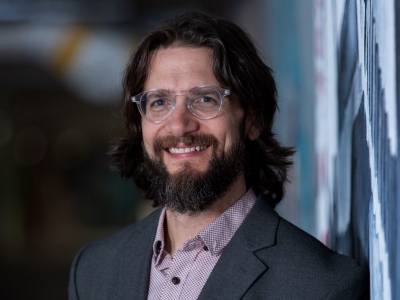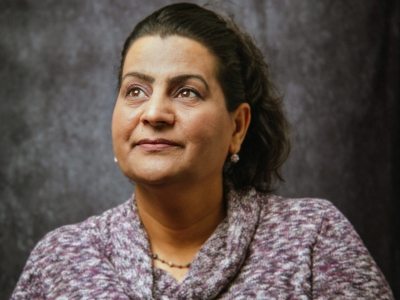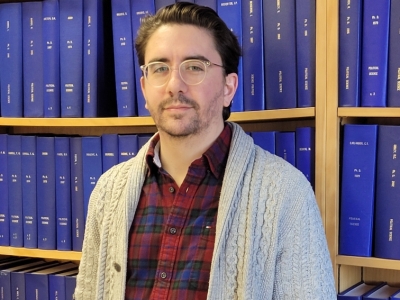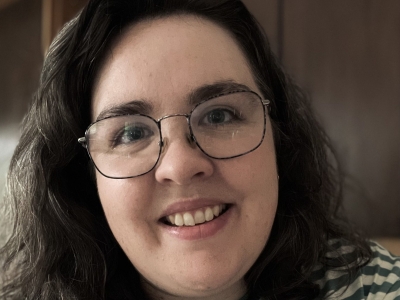
Political Science Professor William Walters has been named an FPA Research Excellence Chair.
At a time in history when there are more displaced people than ever before, we’ve become accustomed to seeing images of migrants and refugees trapped behind barbed wire fences, often waiting for deportation.
Most of us don’t realize what happens next: that these deportees are typically transported by an airline—either on a commercial aircraft or a chartered flight—paid by Western governments.
“We’re paying for this; it’s being done in our name, and to a certain extent, we’re all responsible for it,” explains William Walters, a Professor of Political Science and Sociology who was recently named an FPA Research Excellence Chair. “But it’s quite secretive, so researching it poses a challenge.”
As the FPA Research Excellence Chair at the full professor level, Walters intends to broaden the understanding of the crucial role airplanes and airline companies play in deportations.
“Air deportation from Canada is remarkably discreet, while in the United States, where the numbers of expulsions are far greater, it is run by the Immigration and Customs Enforcement officers, or ICE,” he says. “Increasingly they charter private planes and sometimes you’ll see television footage of people in chains who are presented as dangerous criminals.”
Walters’ interest in air deportation began in Europe in the early 2000s. His eye was caught by activists who subverted the branding of airlines in Germany and the Netherlands to protest the deportation of failed asylum seekers by air.
“They would use the yellow and blue colours of Lufthansa and label it ‘deportation class’. It really emphasized that this forced movement involved planes.”
In earlier work Walters has contextualized deportation by placing it alongside other forms of forced relocation, such as criminal transportation, and the expulsions of religious groups and the poor. In modern times, he’s found deportations are difficult to track. He and his colleagues use what they call incident mapping to gather information. They look at incidents – that is, situations where a deportation fails leading to a public inquiry, lawsuit, or whistleblowing – to collect information on mechanisms and processes that are otherwise hidden from view.
“Flying people on planes can be a violent, conflictual, nasty business,” explains Walters. “We get a lot of information from cases where things have gone wrong, and from struggles for justice to right those wrongs.”
For example, the CBC reported in 2014 on a Canadian deportation route to Somalia in which Canadian Border Services Agency would take convicted criminals with Somalian connections to Kenya and then pay a private security company to take the person on to Somalia—even if the deportee had never been there. In another case, a man died on the runway of Heathrow Airport in England. A court case determined he was suffocated by his guards on the plane but found the guards not guilty of manslaughter. Various pilots and stewards gave testimony, which offered a broader picture of the deportation process.
A Move Towards ‘Soft’ Deportation?
A growing number of countries—particularly in Europe—are moving to the “assisted voluntary return” model, which is a combination of threats and incentives to convince people to leave voluntarily.
“On the one hand, there’s a hard threat that you leave in chains. On the other hand, they’ll pay your ticket and give you a resettlement allowance,” explains Walters, who is studying the involvement of airlines in migration control, as well. “That’s the dream of this assisted return project: to turn deportees into vaguely reluctant passengers.”
While some countries have found that voluntary returns are more cost-effective, Walters finds there is still support for the symbolic act of deportation.
“In some cases, the state will stop at nothing to deport someone. The cost is secondary,” says Walters. “They want to be seen as tough and sovereign and there is a large audience for deportation in populist times.”
Walters says there are many gaps in the research on this topic. As an FPA Research Excellence Chair, he hopes to change the way we see expulsion by showing how the global aviation system intensifies the state’s powers to remove people but also opens up new forms of resistance and friction within the deportation regime.
Wednesday, July 17, 2019 in Department of Political Science, FPA Research Excellence Chair, News, Research
Share: Twitter, Facebook



